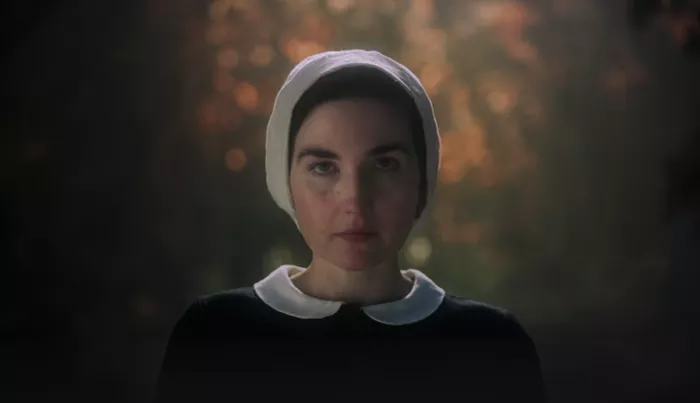In her 2024 film Witches, Elizabeth Sankey blends personal testimony with historical and cultural analysis to explore the haunting connection between postpartum mental health struggles and the mass persecution of women during the witch hunts in North America and Europe. Screened at the Athena Film Festival on March 8, Sankey’s thought-provoking documentary juxtaposes her own experience with postpartum depression and psychosis with the legacy of women accused of witchcraft from the 15th to 18th centuries.
The documentary opens with Sankey recounting her childhood fascination with witches, a theme that reappears throughout her journey as an adult facing postpartum mental illness. Sankey, whose experience led her to be hospitalized in a psychiatric ward, draws a compelling parallel between her personal battles and the centuries-old trauma of women labeled as witches. As she narrates over a haunting soundtrack, Sankey reflects on how the same forces that led to the mass executions of women in history continue to shape societal expectations of motherhood today.
Witches is a blend of video essay and documentary, offering a panoramic view of witch-themed pop culture, drawing from films like The Craft and Girl, Interrupted to highlight how media representations have shifted from depictions of witches as satanic figures to symbols of empowerment. Yet Sankey’s film is not without its limitations. While visually striking, the film overlooks beloved witch characters like Hermione Granger from the Harry Potter series and Kiki from Kiki’s Delivery Service, limiting its scope in the portrayal of witches in modern media. Moreover, Sankey’s analysis of misogyny in witch trials feels dated, as the portrayal of the Wicked Witch of the West in The Wizard of Oz no longer fully represents contemporary understandings of the archetype, which has been reclaimed in shows like Wicked.
Through poignant storytelling, Sankey’s own experiences with postpartum mental health are framed as a means to better understand the historical persecution of women. In candid interviews, she shares her sense of alienation from the “perfect mother” stereotype, echoing the isolation felt by those labeled as witches. Sankey’s testimony is a powerful critique of the societal expectations placed on women to embody an idealized form of motherhood, one that leaves little room for the complexities of mental health struggles.
The film also features interviews with experts and mothers who have experienced postpartum psychosis, including Marion Gibson, a professor of Renaissance and magical literatures, and David Emson, whose wife Daksha tragically took her own life after struggling with postpartum psychosis. These emotional accounts underscore the film’s central thesis: that the historical accusations of witchcraft may have been rooted in mental health crises, particularly among women facing intense social pressures and isolation.
Despite some moments where Sankey’s comparisons between postpartum depression and witch hunts feel overly specific, the film’s powerful storytelling and the urgency of its message make it a must-watch. Sankey highlights the broader issue of how women’s health—particularly in marginalized communities—continues to be disregarded by medical systems. The film touches on racial disparities in healthcare, citing the work of perinatal psychologist Chrissy Jayarajah, who discusses the challenges faced by women of color, whose pain is often dismissed, leading to catastrophic consequences.
In closing, Sankey offers a hopeful message about the importance of female solidarity in the face of adversity. As she reflects on her own healing journey, she underscores the critical role that female friendship played in her recovery, encapsulating the essence of the witch as a symbol of power and unity. “Every woman is a witch and every witch needs a coven,” she declares, reinforcing the theme of communal support in overcoming personal and societal struggles.
Related topics:
Jason Statham’s ‘A Working Man’ Struggles with Action and Story
Julie Delpy Joins Ruben Östlund’s ‘The Entertainment System Is Down’
Angel Studios Faces Lawsuit Over David Distribution Rights

